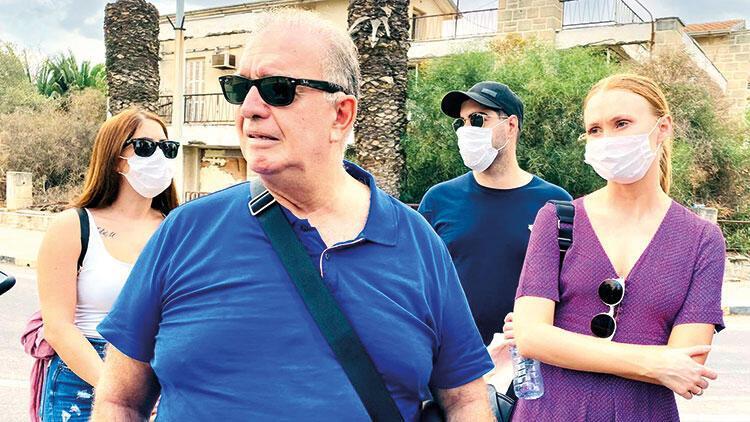
Members of the Lordos family, the legal owner of several properties, including five-star hotels and apartments in the fenced town of Varosha, have visited the city to examine the latest state of their properties that have been idle for 46 years.
Dimitri Lordos, one of the wealthiest Greek Cypriot businesspeople who had to leave the touristic city at the age of 19 in 1974, visited the house where he was born and his father’s abandoned hotels on Oct. 13.
He is one of the two sons of Andreas Lordos who left six hotels, nine apartments, five workplaces, houses and lands in Varosha due to Turkey’s military operations following a Greek-inspired coup in 1974.
Having a Turkish Cypriot-origin mother named Sultan Ibrahim, later changed to Maria, Andreas Lordos had struggled to return to Varosha for years before he died five years ago at the age of 88.
Lordos, who crossed to the north of the island by taking his two sons, daughter, and daughter-in-law with him, said that he was determined to return even if the city was opened under Turkish Cypriot administration and that he would immediately start investing if permitted.
The city was a famous resort region in Cyprus that boasted a capacity of 10,000 beds across more than 100 hotels, but it has been closed for more than four decades.
On Oct. 6, the Turkish Cypriot government partially reopened the beachfront area of the “ghost town” in a move welcomed by Turkey, opposed by Greece and Greek Cypriots. The Greek Cypriot leader, Nicos Anastasiades, on Oct. 7 criticized the opening of the town, as he called it a violation of international law.
Visiting the city to see the hotels, workplaces, houses and lands inherited from his father Andreas, Dimitri Lordos shared his very first feelings to Hürriyet daily.
“Today is a very emotional day for me because I am at home for the first time in 46 years. I was very young when I left here. I remembered my family today. I lost them, my family is no longer with us, but their love is with us,” Lordos said.
“I wish my father could see these days too,” he noted, adding that he is the first person to return [to the city] when permitted and will invest in all his properties.
“I hope that in the future Turkish Cypriots and Greek Cypriots will develop this city together and live together in peace. I have so many memories here, mixed feelings,” Lordos said.
In the resolution 550 of 1984, the U.N. Security Council considered any effort to populate Varosha with people other than its inhabitants as inadmissible and called for a transfer of the area to the administration of the U.N.
Within the framework of the decisions of the European Court of Human Rights (ECHR), it was envisaged that Varosha will be reopened under the Turkish Cypriot administration by returning the rights of Greek Cypriot property owners before 1974.
The Lordos family is among nearly 300 Greek Cypriots who have applied to the Turkish Cypriot Immovable Property Commission (TMK) established in Lefkoşa in 2005, where the ECHR has recognized its rulings.